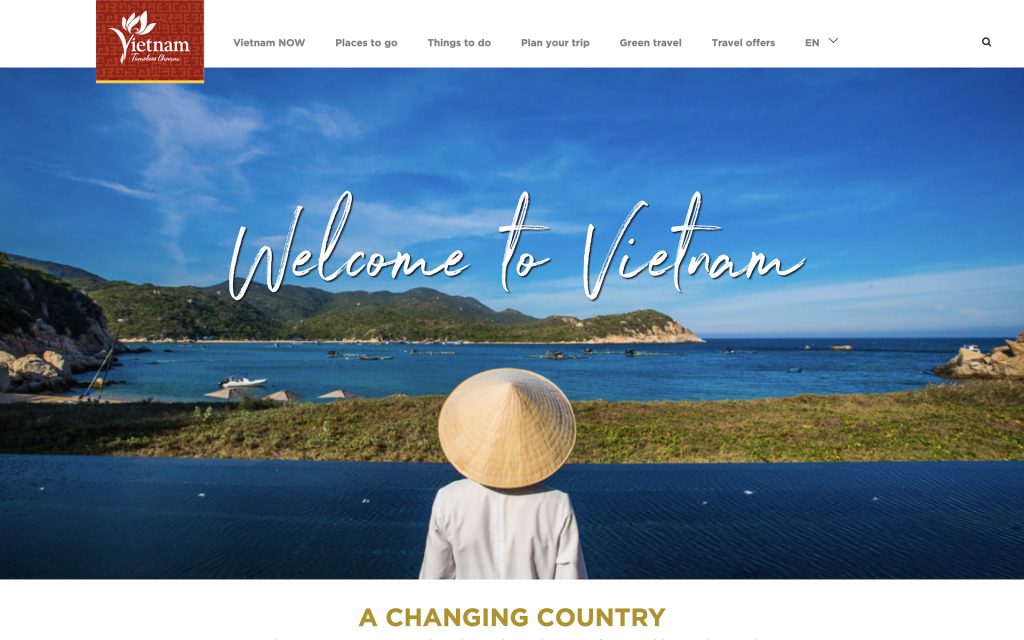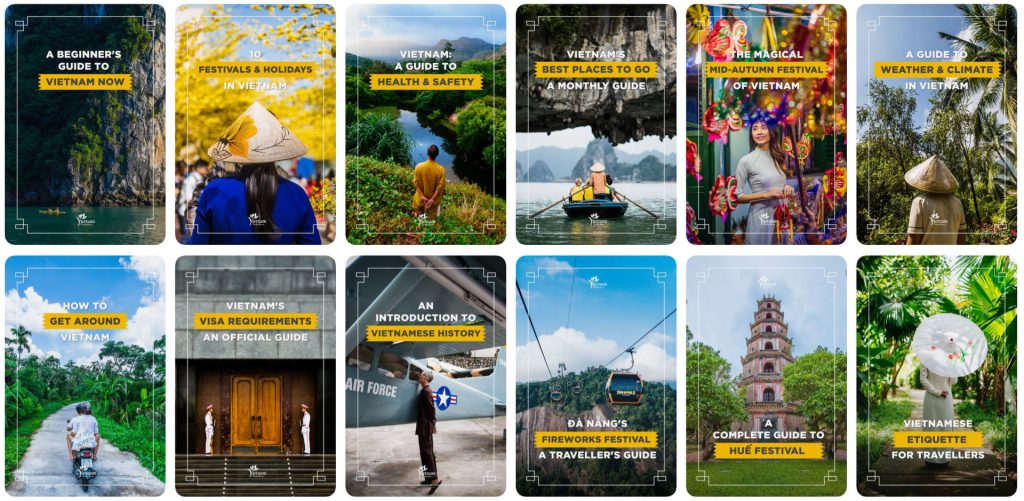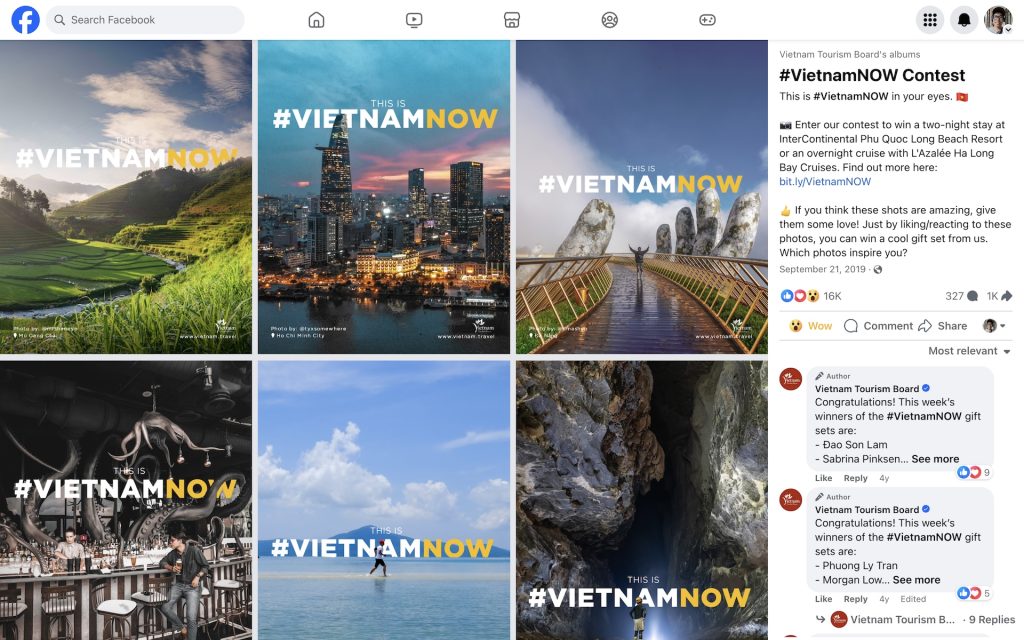In March 2020, while working to assist tourists stranded in Vietnam by COVID-19, I was calling numerous hotels on behalf of my team at the Tourism Advisory Board (TAB). One hostel owner who had never heard of TAB was particularly suspicious and asked me: “What are you selling?” Taken aback for a moment, I responded with a smile: “I’m selling Vietnam.”

During my three years at TAB, my team assisted the Vietnam National Administration of Tourism with “selling Vietnam” using digital marketing. Specifically, we managed the national tourism website, online ads, and social media presence.
Joining TAB as a Social Media Specialist in 2018, I built strategies, created content, and managed accounts for Vietnam Tourism on Facebook and Instagram. In 2019, I moved into the Ad Manager position and took over the running of all our Google and Facebook ads. These ads were delivered to 11 selected markets in three languages, and aimed at driving traffic to Vietnam.travel, gaining followers, and increasing social media engagement. Aside from that, I also managed the ‘Vietnam Tourism Board’ account on YouTube and Pinterest.
Our work had seen an increase from 10,000 pageviews and 20,000 followers since 2017. Under our watch, Vietnam.travel reached 3.8 million total page views and 1 million social media fans in 2020. Our Facebook page became one of the most active tourism board pages in the region, and engagement on Vietnam’s Instagram in Q4/2020 was 7%, triple that of most regional competitors. Vietnam’s Pinterest and YouTube also stood among the most aesthetically pleasing channels in Asia. These substantial increases were one of the more successful ways my team and I have sold Vietnam.

Looking back, TAB was like a boot camp for product management, but with a whole country as my project. We were a tiny team – less than 10 people, shoestring budget – but somehow responsible for Vietnam’s entire online tourism presence.
The constant questions were exhilarating:
- With what we had, how could we create the most impactful content for tourists?
- What evergreen pieces would be our foundation, ready to be repurposed later?
- And how did we get it all in front of the right eyes, again, with limited resources?
Overcoming these challenges wasn’t just a product crash course; it instilled in us a deep understanding of the importance of user-centricity, data-driven decisions, and resourcefulness.

Stakeholder management was also a big part of our work. Outside of Vietnam, we represented the entire nation, being a friendly neighbour to other countries in the region, a helpful travel companion to Vietnam’s visitors, and an innovative partner to international media. Inside Vietnam, we maintained a partnership between the government and private sectors, with my team being in the private sector. This called for the careful management of relationships with the government, ensuring the satisfaction of our sponsors, holding our service vendors accountable, and gaining support from Vietnamese businesses, media outlets, and fans.
TAB gave us the mindset of a go-getter, and the rewards were sweet: we helped put Vietnam on the map, touching millions of lives.
While I’m still learning the ropes as a product manager, I’m excited to leverage the transferable skills I’ve acquired during my time promoting Vietnam. From resource management and stakeholder engagement to cultivating a data-driven and user-centric mindset through social media and advertising, my experiences have equipped me with a diverse skillset. Additionally, working in an international, public-private environment has strengthened my communication and negotiation skills, allowing me to adapt and thrive in a range of settings.
I’m eager to continue learning and growing, applying my dedication and resourcefulness to new challenges and opportunities in the product management world.
So, bring on the challenges!